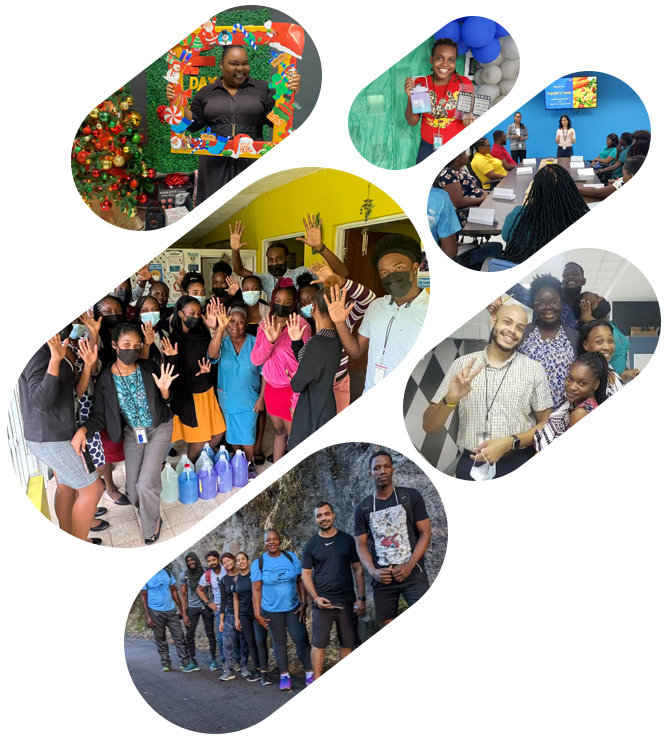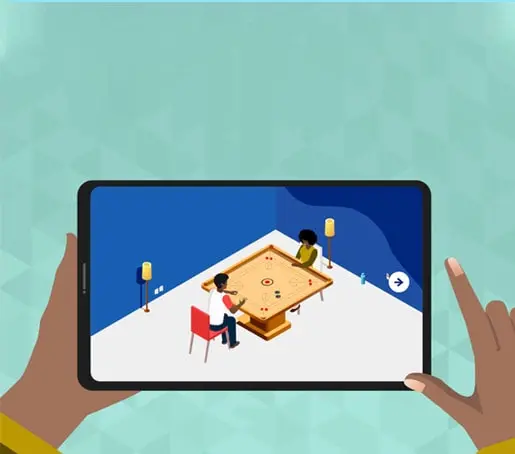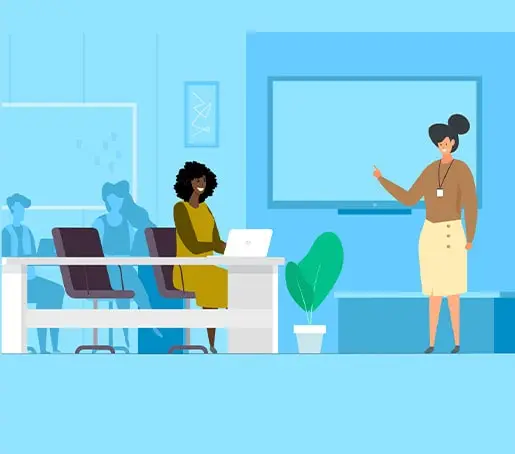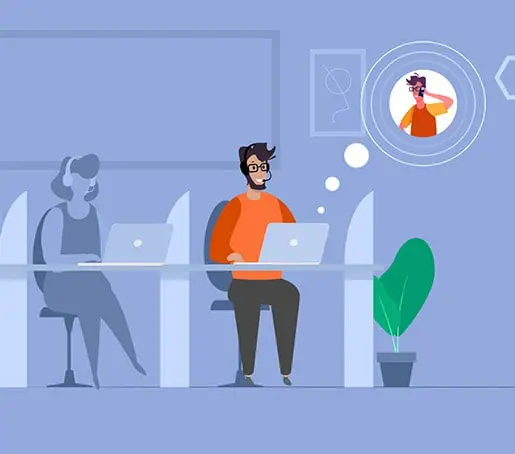Job interviews can make or break your career. Even with the right skill and experience, common interview mistakes can undermine your chances. Many job candidates don't recognise how vital even minor slip-ups can be, for instance, being late, dressing incorrectly, or not having any questions, in terms of their overall performance.
While candidates are typically preoccupied with their own interview mistakes, there are certainly common mistakes made by interviewers as well! However, as the candidate, you have to take the process seriously by ensuring adequate job interview preparation. In that case, you should be able to manage your own performance, carry yourself well, and increase your chances for success.
This guide explores the top 10 common job interview mistakes along with practical strategies to steer clear of them.

Avoid These Top 10 Interview Mistakes for Success
Below are the most common interview mistakes, along with helpful hints on how to avoid them, so you can make a memorable impression and increase your chances of success.
1. Lack of Preparation
One of the most common interview errors candidates make is arriving at an interview without proper preparation. Employers expect you to have a good understanding of the company, its culture, and the role you’re applying for.
Interview mistake examples:
- Not researching the company’s background.
- Being unable to answer why you’re interested in the role.
- Struggling to explain how your skills align with the job
How to avoid it:
- Review the company's website and social media profiles.
- Study the job description.
- Practice answers to call centre interview questions or role-specific scenarios.
2. Being Late
Punctuality reflects reliability. Being late is one of the most obvious mistakes to avoid in interview situations, and it creates a poor first impression.
Interview mistake examples:
- Arriving 5–10 minutes after the scheduled time.
- Logging in to a virtual interview late due to a poor technical setup.
How to avoid it:
- Aim to arrive at least 10–15 minutes prior to the scheduled start time.
- For virtual interviews, test your camera, microphone, and internet connection in advance.
- Keep the interviewer’s contact details handy in case of unavoidable delays.

3. Bringing Up Salary Too Early
Discussing pay prematurely is another common mistake during interviews. While compensation is necessary, bringing it up at the start of an interview may signal that money is your only motivation.
Interview mistake examples:
- Aim to arrive at least 10–15 minutes prior to the scheduled start time.
- Asking, “What is the salary?” in the first few minutes.
- Focusing on perks and benefits before discussing your skills.
How to avoid it:
- Wait until the interviewer initiates the salary discussion.
- If asked about your expectations, provide a realistic range based on research.
- Emphasise your interest in the role and how you can add value.
4. Lack of Enthusiasm
Hiring managers notice when a candidate seems disengaged. A lack of enthusiasm is one of the most subtle yet damaging common mistakes during interview sessions. Even if you are nervous, showing interest through body language and tone is key.
Interview mistake examples:
- Monotone answers with little energy.
- Minimal eye contact or flat body language.
- Showing no excitement about the company or role.
How to avoid it:
- Express genuine interest when talking about the company’s projects.
- Smile, use positive body language, and maintain steady eye contact.
- Ask follow-up questions to show enthusiasm about the team and role.
- Ask follow-up questions to show enthusiasm about the team and role.
5. Talking Negatively About Past Employers
Badmouthing your previous boss or company is one of the typical job interview mistakes that signals poor professionalism. It raises concerns about your attitude and ability to work effectively with others.
Interview mistake examples:
- Complaining about low pay or difficult managers.
- Highlighting conflicts with teammates.
How to avoid it:
- Positively frame past challenges.
- Focus on what you learned rather than what went wrong.
- Emphasise how those experiences prepared you for future opportunities.
6. Lack of Confidence
Many candidates struggle with nerves, making a lack of confidence a frequent job interview mistake.
Interview mistake examples:
- Speaking too softly or hesitating to answer.
- Avoiding eye contact.
- Overusing filler words like “um” or “uh.”
How to avoid it:
- Practice mock interviews with friends or mentors to refine your skills.
- Prepare a list of achievements you can highlight.
- Use breathing techniques to stay calm.
7. Failing to Dress Appropriately
First impressions matter, and attire plays a critical role in shaping them. Failing to dress appropriately is another common mistake to avoid during an interview.
Interview mistake examples:
- Wearing casual outfits to a formal interview.
- Overly flashy or distracting attire.
How to avoid it:
- Research the company’s dress code beforehand.
- For corporate roles, stick to formal attire..
- For creative or startup environments, a smart-casual approach may be more suitable.
8. Not Asking Questions
When the interviewer asks, “Do you have any questions?” and you say “No,” it signals disinterest. This is one of the most overlooked mistakes to avoid in interview sessions.
- Research the company’s dress code beforehand.
- For corporate roles, stick to formal attire..
- For creative or startup environments, a smart-casual approach may be more suitable.
Interview mistake examples:
- Not asking about company culture or growth opportunities.
- Failing to clarify job responsibilities.
How to avoid it:
- Prepare at least 3–4 thoughtful questions.
- Examples: “What does success in this role look like?” or “How do teams collaborate here?”
- Show interest in long-term career development.
9. Inappropriate Body Language
Body language speaks louder than words. Poor posture, lack of eye contact, or restless movements are common interview mistakes that can distract from your skills and abilities.
Interview mistake examples:
- Slouching in the chair.
- Crossing arms defensively.
- Fidgeting with pens, phones, or hair.
How to avoid it:
- Sit upright with shoulders relaxed.
- Use hand gestures naturally.
- Maintain eye contact without staring.

10. Not Following Up
Many candidates forget to send a thank-you note after an interview. Not following up is one of the easiest interview mistakes to avoid, yet it can cost you the job.
Interview mistake examples:
- Failing to send a thank-you email within 24 hours.
- Sending a generic note with no reference to the conversation.
How to avoid it:
- Write a personalised thank-you email summarising key discussion points.
- Reaffirm your enthusiasm for the role.
- Keep it polite, professional, and concise.
Conclusion
Interviews are as much about avoiding common job interview mistakes as they are about showcasing your skills. From preparation and punctuality to body language and follow-up, every detail counts. By recognising the top interview mistakes and practising strategies to avoid them, you’ll approach interviews with confidence and professionalism.
While interviewers may also make mistakes, candidates must focus on avoiding their own to make the best impression. By steering clear of these errors, you’ll be able to stand out and keep the spotlight on your skills and potential. Mastering these strategies will give you an edge in today’s competitive job market, whether you’re applying for customer service jobs, IT positions, or leadership roles in Jamaica.
For candidates aiming to build meaningful careers, preparation is key—and with opportunities at HGS Jamaica, avoiding these mistakes can put you one step closer to success.”
FAQs
What are the most common mistakes to avoid in a virtual interview?
Some of the biggest mistakes include technical glitches due to a lack of preparation, poor lighting or background, dressing casually, and failing to maintain eye contact with the camera. Always test your setup in advance and treat virtual interviews as seriously as in-person ones.
Is it essential to ask questions at the end of an interview?
Yes. Not asking questions signals a lack of interest. Asking about company culture, growth opportunities, or role expectations shows curiosity and engagement.
How should I deal with an awkward silence during an interview?
Stay calm. Take a moment to think before answering. If unsure, acknowledge the question and ask for clarification. This demonstrates composure and professionalism.
What is the most common reason candidates fail job interviews?
The most common reasons include a lack of preparation, poor communication skills, and a failure to demonstrate enthusiasm for the role. These are all interview mistakes to avoid with proper job interview preparation.
 Jamaica
Jamaica Canada
Canada Colombia
Colombia India
India Philippines
Philippines UK
UK US
US SA
SA



